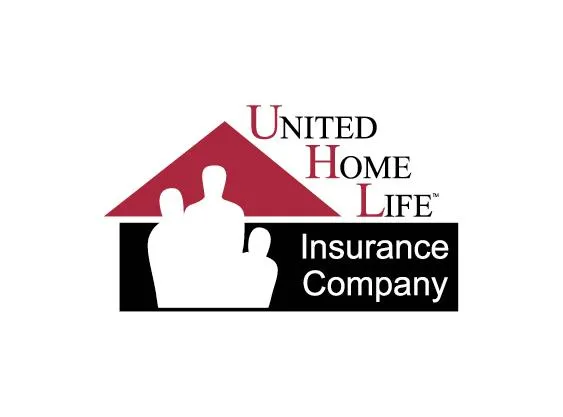Since 2008, We've Been The Trusted Life Insurance Choice For Over 121,000 Individuals. There's No Fee Or Commitment To Begin.

5 Myths About Life Insurance Underwriting
You make an excellent point. There are indeed many prevalent misconceptions surrounding life insurance coverage that can lead potential applicants astray and discourage them from exploring quality plans that could benefit their specific situations. The lack of transparency in the underwriting process, which holistically assesses an applicant's risk profile, coverage needs, and appropriate premium levels, contributes to this informational asymmetry.
Life insurance companies are not monolithic entities, and their policies, underwriting guidelines, and coverage offerings can vary significantly. Therefore, it is crucial for consumers to conduct thorough due diligence and not rely on generalized myths or hearsay when making such an important financial decision.
By dispelling these common misconceptions and shedding light on the realities of life insurance coverage, we can empower potential applicants with the clarity and knowledge they need to make informed choices that align with their unique circumstances and long-term goals.
You're absolutely right – clarity is power when it comes to navigating the life insurance landscape. Let's take a moment to address and debunk some of the most pervasive myths and misconceptions that often plague potential applicants:
Life Insurance Myth #1 – I am uninsurable if I have a pre-existing medical condition.
Don't be discouraged if you have a pre-existing medical condition and think you can't get life insurance. While it's true that serious health issues can make securing coverage more challenging, the good news is that life insurance companies have gotten much more flexible in recent years. Their application processes and offerings have been expanded to consider a wider range of health situations.
Let's look at high blood pressure as an example. It typically wouldn't automatically disqualify you. The insurer might place you in a different risk category with a slightly higher premium to reflect the increased risk. But there's even better news: if you've been managing your blood pressure effectively through lifestyle changes or medication, you could qualify for a preferred risk class with a significantly lower premium. This means significant savings! Even a cancer diagnosis doesn't necessarily mean you're uninsurable. The type, stage, how long ago it was diagnosed, and your overall prognosis will all be factored into the insurance company's decision. Again, the premiums will likely be higher, but coverage is still obtainable.
The key takeaway here is that the existence of a pre-existing condition itself doesn't automatically exclude you from life insurance. The type and severity of the condition will largely determine the insurance company's decision and the premium amount.
Now, let's say you apply for standard life insurance and get denied due to a pre-existing condition. There are still options! You can explore what's called high-risk life insurance, also known as impaired risk life insurance. This is designed for people with significant health conditions or those who participate in risky hobbies. While the premiums will be higher and the benefits potentially lower to reflect the greater risk, it's a solid alternative if you can't qualify for standard coverage. This way, you can still provide some financial security for your loved ones.
Life Insurance Myth #2 – Insurers won’t find out if I withhold information on my application.
Life insurance providers utilize a comprehensive array of tools and have access to extensive databases to scrutinize an applicant's information thoroughly. Given the depth of investigation capabilities, it's highly probable that any inaccuracies or false information provided in your application will be uncovered. Insurance companies can review a wealth of information, including reports from the Medical Information Bureau (which collects data shared among life insurance companies), records of doctor's visits, pharmaceutical histories, motor vehicle reports, and credit histories. Additionally, they might require a detailed medical examination and specific tests like urinalysis, cognitive assessments, and hair analyses for drug detection. With such detailed investigative resources at their disposal, life insurance companies are adept at confirming the accuracy of your application details.
Should the insurance company find any discrepancies, such as omitted information or outright falsification of facts, the consequences can vary widely. If such misrepresentations are discovered before the policy's approval, the insurer has the option to either deny coverage altogether or adjust the proposed premiums and the risk classification based on the newfound information. On the other hand, if misrepresentations come to light after the policy has been issued, the insurer may opt to cancel the policy, modify the premiums without canceling, or deny any death benefits claims. This rigorous process underscores the importance of being forthright in your application to avoid any potential repercussions.
Life Insurance Myth #3 – Life insurance is only for rich people.
Regrettably, numerous individuals from the middle and working classes who would greatly benefit from a comprehensive life insurance policy often hesitate to apply. A common misconception is that high-quality life insurance plans are prohibitively expensive or that eligibility for such benefits demands a high level of assets or income. Many potential policyholders significantly overestimate the cost of life insurance. The truth is, the insurance industry is well-developed and varied, offering quality life insurance plans tailored to a broad spectrum of economic situations.
For those seeking to enhance their insurance protection on a budget, term life insurance presents an affordable solution with lower initial premiums compared to permanent life insurance options. This affordability makes managing payments more feasible during the policy's early years. The market does feature extremely affordable life insurance policies designed for those with financial constraints; however, these lower-cost options may come with specific limitations.
While death benefits under these cost-effective plans may only be disbursed under more narrowly defined conditions—such as specific exclusions—these terms are not necessarily so restrictive as to form a considerable obstacle. A skilled life insurance agent can collaborate with you to craft a plan that judiciously reduces costs while optimizing coverage, ensuring you receive valuable protection without straining your finances.
Life Insurance Myth #4 – I am young and have no dependents. I don’t need life insurance.
Contrary to popular belief, life insurance isn't just for older couples with a long list of dependents. There are compelling arguments for securing a life insurance policy early in life, even when you're young and don't have dependents. One of the key benefits of getting insured at a younger age is the potential for lower premium rates. Insurance companies take the applicant's age into account as a significant factor in risk assessment and determining premium costs during the underwriting process. Additionally, younger individuals are generally in better health, with fewer medical conditions that could impact their future well-being. For instance, a thirty-year-old might not have issues with high blood pressure, but the same person could face such health challenges fifteen years down the line. This early health advantage can result in reduced costs for a comprehensive life insurance policy for younger applicants. Opting for life insurance while young allows you to secure coverage based on your current, possibly optimal health condition, ensuring you benefit from the lowest premiums available over the policy's duration. Moreover, life insurance policies are designed with flexibility in mind. Depending on your policy's features, you might have the option to modify your coverage to align with evolving life circumstances and needs as you age.
Life Insurance Myth #5 – The details of my life insurance plan are set in stone.
Life insurance is designed to be adaptable, recognizing that your coverage needs will likely evolve over time. It's important and advisable to periodically reassess your insurance policy, especially after significant life milestones. Events such as marriage, divorce, welcoming a new child, or losing a loved one can significantly impact your insurance needs, prompting updates to beneficiaries (those who will receive the death benefits), contact details, and other pertinent records. As you navigate through life's changes, you may discover the need to adjust your coverage. This could mean decreasing your coverage to reduce monthly premiums or converting a term life policy into a permanent one for extended protection. Additionally, with the addition of new family members or dependents, there might be a necessity to enhance your plan to ensure a larger death benefit for your loved ones. Life insurance policies offer considerable flexibility, allowing for adjustments even after many years. Maintaining your policy and making updates when your situation changes is not just advisable—it's essential for keeping your coverage aligned with your life's current trajectory.
Popular culture is rife with inaccuracies and myths about life insurance and the intricacies of the underwriting process. These widespread misconceptions shouldn't deter you from exploring and securing the right life insurance coverage you need. Reach out to TermLifeProvider® today, either by phone or by requesting a quote online. We're here to guide you step by step, ensuring you understand how to obtain affordable life insurance coverage tailored to your needs.
Secure Your Free Life Insurance Quote Today
We Work With These Companies And Many More >










About Us
TermLifeProvider | The Home Of HassanHelps Is A Leading Life Insurance Brokerage, Offering Top Rates From Major Insurers Nationwide. For Over 16 Years, We've Helped Thousands Save On Life Insurance. Our Experience Shows Many Clients Struggle With Diabetes And Related Health Issues Like Sleep Apnea, High Blood Pressure, Arthritis, And Heart Disease. By Educating Our Clients About The Life Insurance Process And How Health Impacts Premiums, We Aim Not Just To Improve Their Health But Also To Reduce Their Life Insurance Costs.



LinkedIn